
When your colonoscopy reveals that you have diverticulosis, hemorrhoids, or both – Harvard Health
Many people have diverticulosis and hemorrhoids without symptoms. Diverticulosis becomes a problem if the small pockets in the colon bleed or become infected. Hemorrhoids cause symptoms if they become enlarged.
Digestive Health Associates
Review of frequently asked questions relating to colonoscopy
Digestive Health Associates
Review of frequently asked questions relating to colonoscopy

Colonoscopy of Ulcerated Internal Hemorrhoid and Rubber Band Treatment – YouTube
Colonoscopy of Ulcerated Internal Hemorrhoid and Rubber Band Treatment This is a 63 year-old, female physician, that due to a rectal bleeding a colonosco…
Massive gastrointestinal bleeding after endoscopic rubber band ligation of internal hemorrhoids: A case report
Massive gastrointestinal bleeding after endoscopic rubber band ligation of internal hemorrhoids: A case report

Endoscopy-Anus-Internal-Hemorrhoids-Bleeding | Dr. Alexander Mantas – Gastroenterologist in Dallas TX
Internal Hemorrhoid (Bleeding)
Hemorrhoidal disease: Diagnosis and management – Mayo Clinic
Rubber band ligation has been shown to be a safe, effective and painless therapy for grade I and grade II hemorrhoids. Although less durable than surgical excision, it is also less costly, has fewer complications and zero recovery time.
Massive gastrointestinal bleeding after endoscopic rubber band ligation of internal hemorrhoids: A case report
Massive gastrointestinal bleeding after endoscopic rubber band ligation of internal hemorrhoids: A case report
Digestive Health Associates
Review of frequently asked questions relating to colonoscopy

Hemorrhoid – Wikipedia
![What are haemorrhoids? Haemorrhoids, or piles, are enlarged tissue cushions in the anus as a result of enlarged or congested blood vessels. While it is normal to have these tissue […]](https://alpinesurgical.sg/wp-content/uploads/2020/04/Alpine_Surgical_Practice_Piles_Banner01.png)
Haemorrhoids – Alpine Surgical Practice | Colorectal Surgeon | Lipoma Removal | Colonoscopy close arrow-circle-o-down align-justify map-marker facebook-square phone-square angle-left angle-right ellipsis-v youtube-square instagram whatsapp cross
What are haemorrhoids? Haemorrhoids, or piles, are enlarged tissue cushions in the anus as a result of enlarged or congested blood vessels. While it is normal to have these tissue […]
Digestive Health Associates
Review of frequently asked questions relating to colonoscopy
Hemorrhoid Treatments Dallas, TX | Hemorrhoidectomy Dallas, TX
Dr Laura Gallagher in Dallas, TX offers hemorrhoid treatments, hemorrhoidectomy, stapled hemorrhoidopexy and hemorrhoidal artery ligation.

6 Things Every Woman Needs to Know About Hemorrhoids play icon
A colorectal surgeon shares what women should know about internal and external hemorrhoids, including symptoms, causes, treatments, and when to see a doctor.
Digestive Health Associates
Review of frequently asked questions relating to colonoscopy
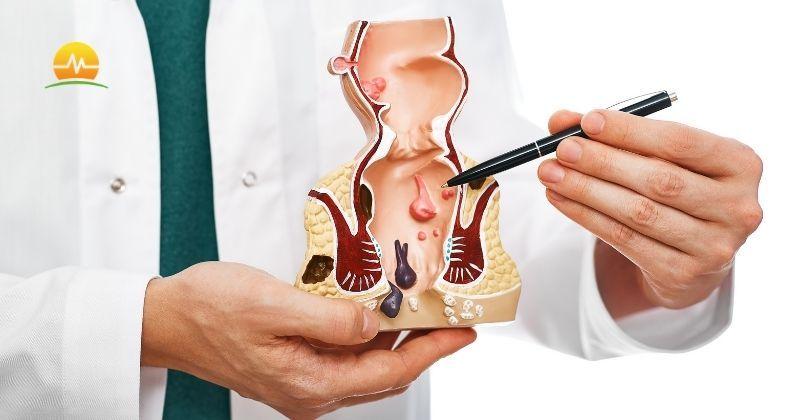
How Common Are Hemorrhoids?
Hemorrhoids are extremely common in adults and very treatable. Talk to your doctor about how you can treat your hemorrhoids
![Beka Aberra [R2] SPHMMC Gastroenterology Attachment Moderator: Yemiserach Chane, MD, Internist/Gastroenterologist December, 2018 Objectives Audit Discus...](https://cdn.slidesharecdn.com/ss_thumbnails/colonoscopy2-190116142321-thumbnail.jpg?width=640&height=640&fit=bounds)
Hemorrhoids/ Colonoscopy Audit
Beka Aberra [R2] SPHMMC Gastroenterology Attachment Moderator: Yemiserach Chane, MD, Internist/Gastroenterologist December, 2018 Objectives Audit Discus…

Colorectal polyps Information | Mount Sinai – New York
Learn about Colorectal polyps, find a doctor, complications, outcomes, recovery and follow-up care for Colorectal polyps.
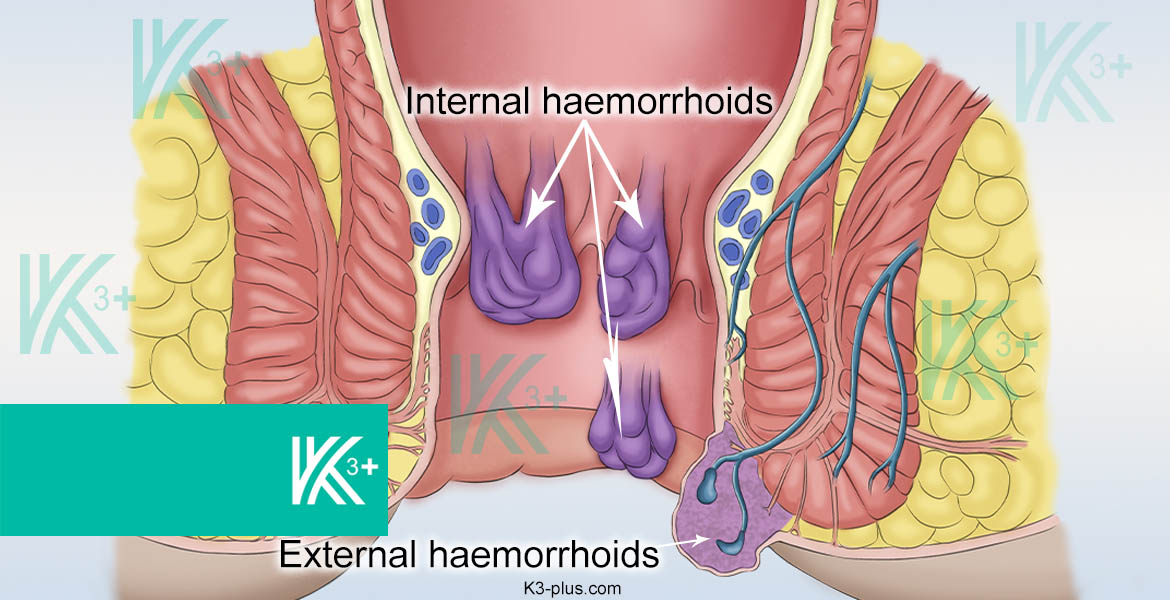
Hemorrhoids (Piles) Laser & Dopple Treatment – photos and videos
Hemorrhoids latest treatment technology in Dubai by Laser & Doppler | understand Internal & External Piles Hemorrhoids by photos & videos
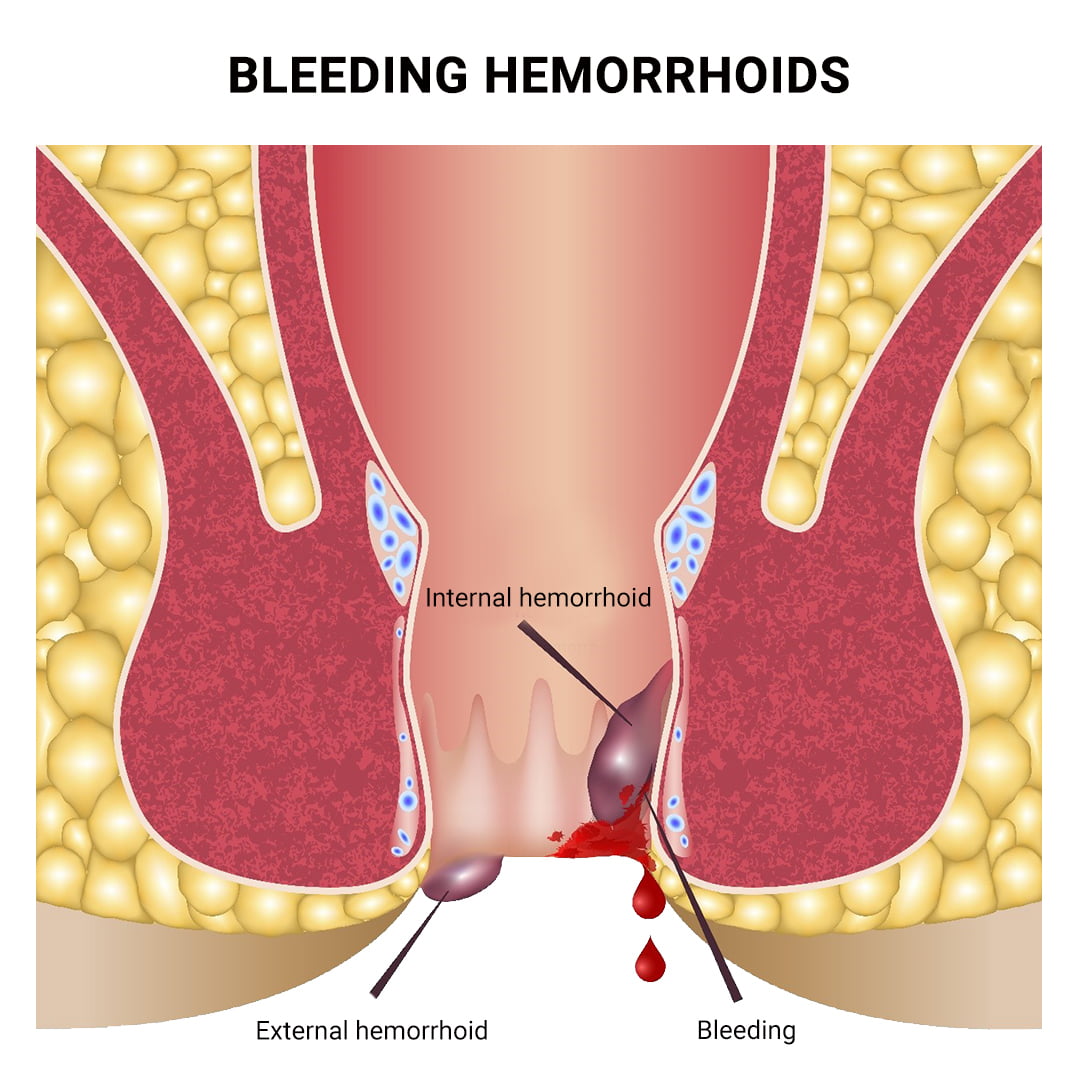
Bleeding Hemorrhoids: When to See a Doctor – Manhattan Gastroenterology
Although most hemorrhoids are minor and can be treated at home, they require professional attention occasionally. Here are some pointers to help you decide when to treat at home and when to see your doctor.

The clinical features of chronic intestinal schistosomiasis-related intestinal lesions | BMC Gastroenterology | Full Text
Chronic intestinal schistosomiasis has been reported to be associated with colonic polyps, colorectal cancer and ulcerative colitis. We aim to investigate the clinical characteristics of intestinal-related lesions caused by chronic intestinal schistosomiasis japonicum. Patients with and without chronic intestinal schistosomiasis were retrospectively enrolled from the endoscopy center of Wuhan Union Hospital from September 1, 2014, to June 30, 2019 with a ratio of 4:1. The characteristics of infected intestinal segments were analyzed in patients with chronic intestinal schistosomiasis. We also compared the characteristics of intestinal-related lesions, including colorectal polyps, colorectal cancer (CRC), ulceration or erosion of the intestinal mucosa and hemorrhoids, between the two groups. A total of 248 patients with chronic intestinal schistosomiasis and 992 patients without chronic intestinal schistosomiasis were analyzed. The most common sites of chronic intestinal schistosomiasis were the sigmoid colon (79.0%) and rectum (84.7%). The frequency of intestinal polyps (64.5% vs. 42.8%, p < 0.001), especially rectal polyps (62.5% vs. 45.0%, p = 0.002), in the intestinal schistosomiasis group was significantly higher than that in the control group. Morphologically, type IIa polyps were more common in the schistosomiasis enteropathy group (68.5% vs. 60.7%, p = 0.001). Female patients with intestinal schistosomiasis had a higher detection rate of CRC than women in the control group (13.8% vs. 5.4%, p = 0.017). There was no significant difference in the incidence of ulcerative colitis between the two groups (0.8% vs. 0.6%, p = 0.664). In addition, the schistosomiasis enteropathy patients had a higher detection rate of internal hemorrhoids (58.9% vs. 51.0%, p = 0.027). Chronic intestinal schistosomiasis mainly involved the rectum and sigmoid colon and was more likely to induce intestinal polyps, especially rectal polyps and internal hemorrhoids. Women with chronic schistosomiasis have a higher risk of colorectal cancer.
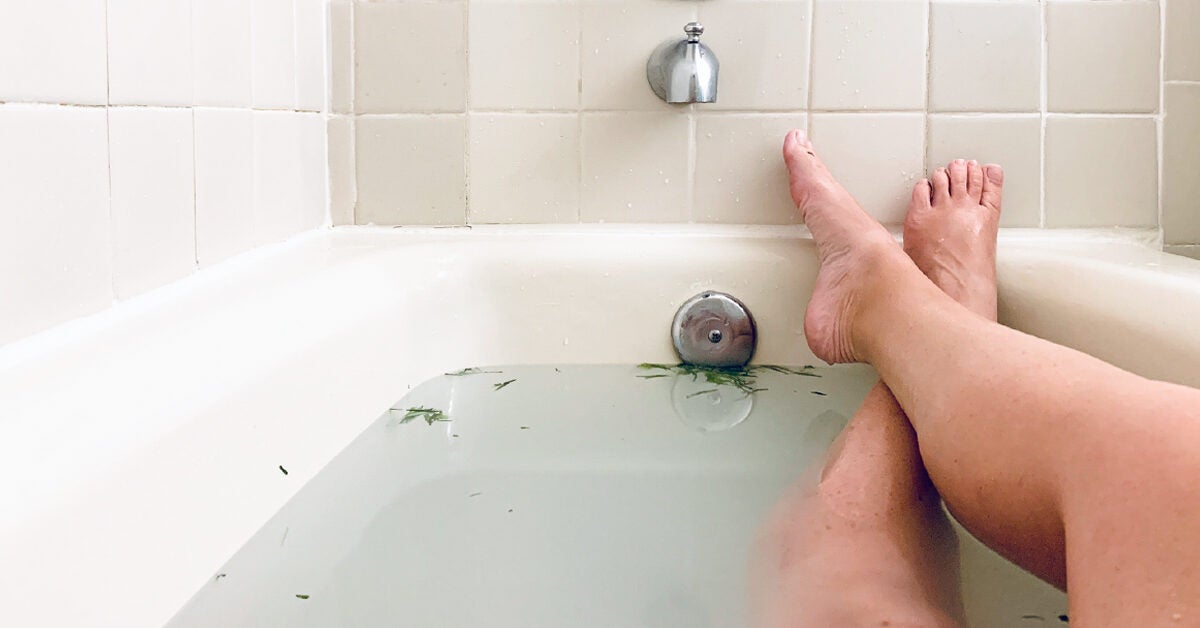
Hemorrhoids: Signs, Diagnosis, and Treatment Healthline
Hemorrhoids, also known as piles, are swollen veins located around the anus or in the lower rectum.

Symptoms of Piles in Female – Images, Reasons and Treatment
Symptoms of Piles in Female: Check woman piles pictures along with the reasons, causes and problems. Know the diagnosis, medicine and treatment process of piles in women.
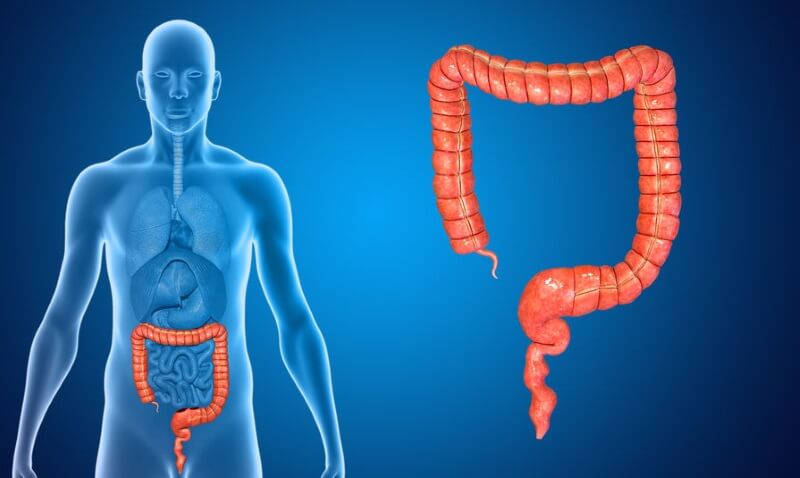
The Difference Between Colon Cancer and Hemorrhoids
Hemorrhoids and colon cancer are two gastrointestinal complications that are on opposite ends of the spectrum. Its vital not to mistake one for the other.

Internal Hemorrhoids | Dr. Zuri Murrell Colorectal Specialist
Dr. Zuri Murrell is a hemorrhoid specialist. Here he describes what internal hemorrhoids are and effective ways to treat them in his private Los Angeles office.

Why Does This Pregnant Woman Have Rectal Bleeding? | MedPage Today
Getting a diagnosis was crucial, but options were limited for safe investigation

What Are Hemorrhoids? Symptoms, Causes, Diagnosis, Treatment, and Prevention
Hemorrhoids, also called piles, are enlarged and swollen veins around the outside of the anus or in the lower rectum. Theyre often caused by constipation and are very common in pregnant women. Learn how to prevent and get rid of them.

Endoscopy | SpringerLink
The endoscopic evaluation of the patient with colorectal complaints forms the keystone of the physical examination. These examinations allow for the visualization of the entire intestinal tract and include anoscopy, proctoscopy, and colonoscopy as well as PillCam…
Piles Treatment in Koramangala, Bangalore | Apollo Spectra
Apollo Spectra offers piles treatment in Koramangala, Bangalore by experts in the field. Know more about the piles surgery cost & procedure.

Hemorrhoids – Surgi-TEN Specialists
At the battle of Waterloo, it was reported that Napoleon Bonaparte’s hemorrhoids had swollen up so much so that he could not mount his horse to survey the…
Structured Content

Hemorrhoid Banding Hemorrhoid Banding
A hemorrhoid banding procedure is a simple, pain-‐free procedure used to treat problematic hemorrhoids…a small rubber bands are secured around the base of the hemorrhoid

Doctor performs colonoscopy, internal hemorrhoid surgery on himself – Taiwan English News
A physician in Guangzhou Province, China, gave himself a gastroscopy and a colonoscopy, then removed polyps and hemorrhoids from his own rectum to show patients that getting a gastrointestinal endo…

Colonoscopy For Piles – Evaluate Rectal Bleeding
patients need a colonoscopy to diagnose the grade of piles or other underlying conditions. In some cases, a screening test is done to rule out the possible cause of the symptoms.

Hemorrhoids Facts – Viewpoints from Expert Doctors
Hemorrhoids are the presence of protrusions of swollen veins outside of the anus. There are two types of hemorrhoids; internal hemorrhoids when they develop inside the rectum, and external hemorrhoids when they develop just under the skin around the anus.

The clinical features of chronic intestinal schistosomiasis-related intestinal lesions | BMC Gastroenterology | Full Text
Chronic intestinal schistosomiasis has been reported to be associated with colonic polyps, colorectal cancer and ulcerative colitis. We aim to investigate the clinical characteristics of intestinal-related lesions caused by chronic intestinal schistosomiasis japonicum. Patients with and without chronic intestinal schistosomiasis were retrospectively enrolled from the endoscopy center of Wuhan Union Hospital from September 1, 2014, to June 30, 2019 with a ratio of 4:1. The characteristics of infected intestinal segments were analyzed in patients with chronic intestinal schistosomiasis. We also compared the characteristics of intestinal-related lesions, including colorectal polyps, colorectal cancer (CRC), ulceration or erosion of the intestinal mucosa and hemorrhoids, between the two groups. A total of 248 patients with chronic intestinal schistosomiasis and 992 patients without chronic intestinal schistosomiasis were analyzed. The most common sites of chronic intestinal schistosomiasis were the sigmoid colon (79.0%) and rectum (84.7%). The frequency of intestinal polyps (64.5% vs. 42.8%, p < 0.001), especially rectal polyps (62.5% vs. 45.0%, p = 0.002), in the intestinal schistosomiasis group was significantly higher than that in the control group. Morphologically, type IIa polyps were more common in the schistosomiasis enteropathy group (68.5% vs. 60.7%, p = 0.001). Female patients with intestinal schistosomiasis had a higher detection rate of CRC than women in the control group (13.8% vs. 5.4%, p = 0.017). There was no significant difference in the incidence of ulcerative colitis between the two groups (0.8% vs. 0.6%, p = 0.664). In addition, the schistosomiasis enteropathy patients had a higher detection rate of internal hemorrhoids (58.9% vs. 51.0%, p = 0.027). Chronic intestinal schistosomiasis mainly involved the rectum and sigmoid colon and was more likely to induce intestinal polyps, especially rectal polyps and internal hemorrhoids. Women with chronic schistosomiasis have a higher risk of colorectal cancer.

How to Get Rid of External Hemorrhoids Fast: 13 Steps
Hemorrhoids (piles) can happen to anyone at any age. These uncomfortable enlarged veins can be found inside or externally around the anus. Hemorrhoids are caused by increased pressure on your pelvic and rectal veins, usually linked to…

Rubber Band Ligation for Hemorrhoids – 3D Medical Animation – YouTube
This 3D animation is for patient education on rubber band ligation for internal hemorrhoids. Hemorrhoids are pockets of swollen blood vessels inside the anus…
Hemorrhoids – Causes, Symptoms, Treatment Options – Mercy Medical, Baltimore MD
Hemorrhoids, swollen and inflamed veins in the lower rectum, treated by GI specialists at Mercy Medical Center, Baltimore.
